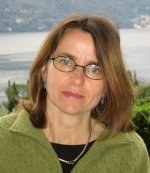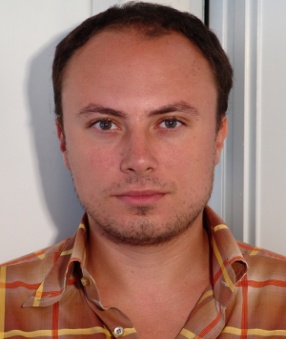Keynote Speakers
|
|
|
Prof. Adelinde Uhrmacher
Institute of Computer Science
University of Rostock, Rostock, Germany
|

|
|
|
|
Title: Credible Simulation Models - Provenance beyond Reproducibility
Date:
Monday - October 15th, 2018
Abstract:
When expressing concerns about the credibility of simulation studies, simulation data have been traditionally in the focus. However, what about another and, some might argue, even more central product of simulation studies, i.e., the simulation model itself? How can the credibility of a simulation model be assessed? Therefore, information about the process of generating a simulation model is needed. This provenance relates entities (or artifacts) and activities involved in the generating process.
Based on simulation studies we will illuminate how the provenance of a simulation model relates the refinement, extension, composition, calibration and validation of simulation models to the diverse sources used in these processes. To exploit this information, unambiguously means for specifying entities play a central role. For example, a formal domain-specific language for modeling facilitates assessing and reusing simulation models. Similarly, a declarative domain-specific language for specifying simulation experiments, helps utilizing simulation experiments done with earlier models for future models. Thus, provenance, information about the past, does not only allow to understand the present, but also to design the future, in opening up new avenues for generating and analyzing simulation models.
Short Bio:
Adelinde M. Uhrmacher is head of the modeling and simulation group at the University of Rostock, and is working on developing modeling and simulation methods and their application in areas such as cell biology, demography, and ecology.
Methodological work includes expressive, formal domain-specific languages for multi-level modeling, methods to efficiently execute simulation models, and methods that support the specification, and automatic generation and execution of computational experiments.
She published more than 200 papers at conferences and journals. She has been involved in the organization of various international conferences, and served on the editorial board of several simulation related journals. Since 2013 she is editor in chief of the Transactions of Modeling and Computer Simulation of the ACM (TOMACS). Under her guidance, TOMACS has established a separate reviewing process to replicate computational results and to evaluate artifacts. She is a member of the ACM Task Force on Data, Software, and Reproducibility.
|
|
|
|
Prof. F. De Rango
Director of CULTURE Lab, DIMES Department
University of Calabria, Italy
Founder of Spintel Ltd, Thunderbit Ltd, FireFly Ltd companies
|

|
|
|
|
Title: Recent Trends and Future Directions in Vehicular Ad Hoc Networks
Date:
Tuesday - October 16th, 2018
Abstract:
In the last years. the rise of new ICT technologies and Artificial Intelligence (AI) methodologies are providing new life to Vehicular Ad Hoc Networks that are becoming always more complex and advanced in providing new services. With the recent advances in wireless communication, and the proliferation of micro-sensor devices, IoT objects, together with recent Networking and Computation paradigm such as Edge and Fog Computing novel frontiers of Autonomous Vehicles can be exploited. Moreover, also the need to reduce CO2 emissions and to provide novel energy harvesting solutions are leading the production of new generation of cars such as Electrical Vehicles (EVs) and Hybrid Vehicles to combine the benefits of the electrical engine and recharging energy stations with renewable energy sources. This talk will cover the broad range of novel EVs, moving towards scalable VANET with on board IoT devices enhanced with new architectures such as Edge layer. Through the introduction of these novel technologies it is possible to think also about Autonomous Vehicles (AVs) with its related research issues to be faced. The keynote will highlight some critical points to be faced in order to deploy AVs in the near future.
Short Bio:
He is Associate Prof. in Telecommunication and Networking at DIMES Dept., University of Calabria, ITALY. In October 2000 he got is Master Degree Thesis cum laude in Electrical and Computer Science Engineering at University of Calabria. During his thesis he spent nine months at C.S.E.L.T (Centro Studi e Laboratorio Telecomunicazioni) in Turin where he worked on Access Network of Telecom Operator gaining experience in the management of Network Access Server (NAS) and on the interworking and integration of multi-vendor and multiplatform infrastructures. In March 2004 he went to Los Angeles at UCLA University where he spent 8 months at Network Research Lab. During this period he matured experience in the field of scalable routing strategies and on the position based routing for distributed systems. In February 2005 he got his Ph.D with a thesis titled "Hybrid Location Based Routing Protocols for Scalable Wireless Ad Hoc Networks with Group Motion". In his thesis a novel hybrid and scalable routing combining OLSR protocol in a short range communication and a geo-forwarding scheme for long distance has been proposed.
He was recipient of Young Researcher Award in 2007 for a Project on Vehicular Ad Hoc Networks (VANETs) called ATENA (Autoconfiguring inTelligent vEhicular Network for urban Area). His interests include Satellite networks, IP QoS architectures, Adaptive Wireless Networks, Ad Hoc Networks, Internet of Things and Pervasive Computing. He has been involved in the organization of many conferences in the roles of Program Chair or General Chair. He co-authored till now more than 220 papers in International Conferences and Journals. He is also in the Editorial Board of International Journals such as International Journal of Communications Systems (Wiley), in Scientific World Journal (Hindawi), Internet Technology Letters (Wiley), in International Journal of Distributed Sensor Networks (Hindawi), in International Journal of Digital Multimedia Broadcasting (Hindawi), in Sensors Journal (MDPI, Internet of Things section), Electronics (MDPI, Networking section), in International Journal of Bio-Inspired Computation, Interdisciplinary Issues in Telecommunication Systems (IGI Pubblication). He founded three start companies called Spintel Ltd (it operates in the IoT field proposing solutions in Home&Building Automation), Thunderbit Ltd (it works in the field of Distributed Wireless System and Broadband Technologies), FireFly Ltd (it works on Embedded and IoT solutions for Smart Cities).
|
|
|
|
|
|

